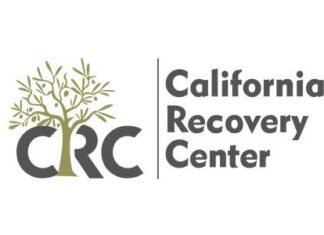Partnership part of global study
SACRAMENTO, Calif. – Click here for details on enrollment criteria and how to sign up UC Davis Health today announced a partnership with Pfizer Inc. and BioNTech SE to participate in a global study of an investigational vaccine against COVID-19, adding a significant component to the university’s response to the deadly coronavirus pandemic.
As part of the partnership, UC Davis Health in the coming days anticipates enrolling as many as 200 participants for a clinical trial that involves roughly 30,000 people around the world.
“We’re excited to be collaborating with our partners in this important clinical trial for a COVID-19 vaccine,” said David Lubarsky, vice chancellor of human health sciences and chief executive officer for UC Davis Health. “We are uniquely positioned to help with a possible breakthrough due to our clinical trials expertise, ability to recruit for clinical trials quickly, and track record of outreach to minority communities.”
Ideal Candidates
Ideal candidates for the COVID-19 vaccine study are those who are at risk of being infected with the virus, such as health care employees and those who work in businesses with a high volume of customers, including restaurants and retail stores. Essential workers who spend a lot of time outside their homes would be also considered ideal candidates.
Candidates should be healthy and between the ages of 18 and 85. Those from ethnic and racial groups that have shown to be disproportionately affected by getting COVID-19, such as Latinos and Blacks, are especially encouraged to participate.
The UC Davis Health effort is led by principal investigator Timothy Albertson, chair of the UC Davis Health internal medicine department and leading expert in pulmonary and critical care medicine, and co-principal investigator Angela Haczku, associate dean for translational research.
Vaccine candidate has shown promising results thus far “UC Davis and our research group are pleased to be part of this global trial, which is a testament to our long history of working with our pharmaceutical partners to improve the lives of not only our patients, but people around the world,” Albertson said.
“Although there are a number of COVID-19 vaccine candidates worldwide, this one differs because it utilizes a novel modified mRNA (messenger ribonucleic acid), which includes a piece of the genetic code of SARS-CoV-2, the virus that causes COVID-19,” Haczku said. “We are very excited, as this is the first time in history that mRNA-based vaccines are used against an infectious disease.
Based on the promising results of preliminary trials, we expect to see protection of vaccinated individuals against COVID-19,” Haczku said.
The research trial, known as a phase 2/3 study, seeks to determine the efficacy and side effects of a single nucleoside-modified messenger RNA (modRNA) candidate from their BNT162 mRNA-based vaccine program. The vaccine candidate has undergone rigorous evaluation in the United States and Germany and has previously shown significant positive results.
UC Davis has played an active role in seeking solutions to combat the coronavirus disease since UC Davis Medical Center providers diagnosed and treated the first apparent case of COVID-19 in the United States acquired by community spread in February.
UC Davis’ current efforts involve an intensive collaboration between pulmonologists and infectious diseases specialists in the medical center’s intensive care units, clinical laboratory pathologists, virologists from medical microbiology, the California National Primate Research Center and the Center for Immunology and Infectious Diseases. The university seeks to better understand the biology and infectious pathology of this new virus and collaborate on new treatment and diagnostic approaches.
The pharmaceutical giant Pfizer, which has teamed up with the smaller BioNTech of Germany, selected vaccine study sites known for their world-class research experience, infrastructure, and nearby concentrations of known and anticipated positive COVID-19 cases.
Historic opportunity for UC Davis Health
“This upcoming COVID-19 vaccine clinical trial is a historic opportunity for the UC Davis School of Medicine and our community at large to directly have a hand in preventing the spread of COVID-19 and potentially save lives across the globe,” said Allison Brashear, dean of the UC Davis School of Medicine. “Our academic medical center is well equipped and staffed to take on this critical role and we are eager to take an active role in helping develop a vaccine.”
UC Davis Health serves a geographical region populated with multiple races and ethnicities, which increases the chances of identifying clinical trial candidates from more diverse backgrounds than other communities in the United States. The pandemic has been especially challenging for Blacks and Latinos who are getting infected and dying at a rate higher than other groups.
“As we have demonstrated throughout this pandemic, our role as the region’s only academic medical center is to move science forward and share what we discover in the interest of greater public health,” said Lubarsky, the CEO of UC Davis Health. “In doing so, we can help eliminate health disparities in underrepresented communities when new therapies and treatments arise.”
Pfizer and BioNTech announced their entry into the late-stage phase 2/3 study on July 27, when they enlisted the first group of the 120 sites that are committed to enrolling participants at risk of contracting the virus, known in the science community as SARS-CoV-2.
The phase 2/3 trial is designed as a 1:1 investigational vaccine candidate to placebo, randomized, observer-blinded study to obtain safety, immune response, and efficacy data needed for regulatory review.
The trial’s primary goal is preventing COVID-19 in those who have not been infected by SARS-CoV-2 prior to immunization and preventing COVID-19 regardless of whether participants have previously been infected by SARS-CoV-2. A secondary goal is preventing severe COVID-19 in those groups.
If the vaccine candidate’s success continues, Pfizer and BioNTech have stated they are on track to seek regulatory review as early as October. If regulatory authorization or approval is obtained, the companies plan to supply up to 100 million doses by the end of 2020 and approximately 1.3 billion doses by the end of 2021.
(21+ years strong)
Welcome to the brighter side!
Get in front of local customers! 24/7 (365)























